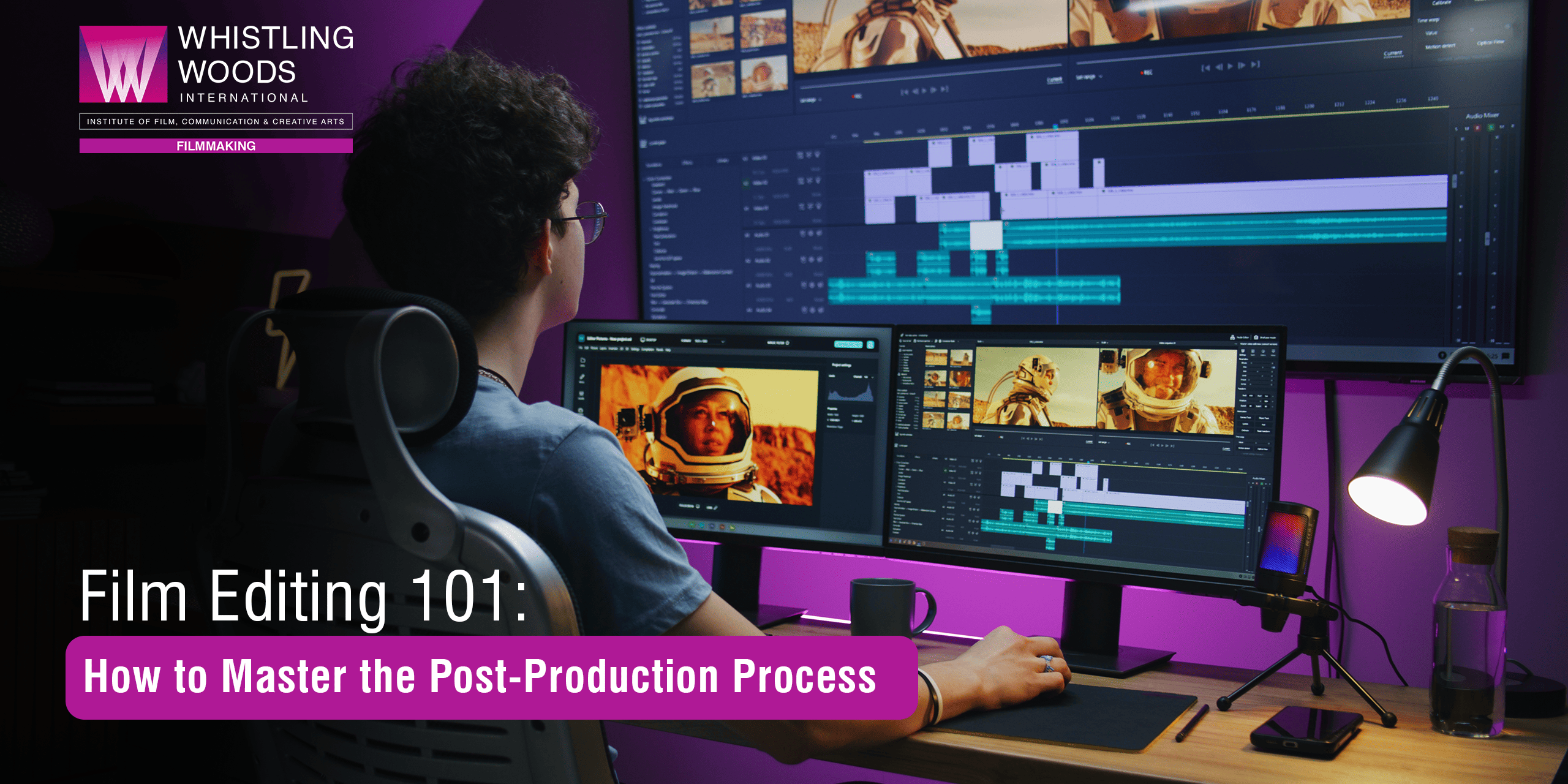In the ever-evolving landscape of the film industry, editing has transformed from the technical act of cutting footage to an essential creative process that requires both skill and artistry. Film editing is a crucial part of filmmaking, and a film editor must master a wide range of editing techniques and styles. After all, editing influences the overall “look and feel” of a movie.
With numerous opportunities for growth, both artistically and professionally, editing is a field with a broad scope in industries such as television, publishing, advertising, film, and digital media. If you aspire to be a film editor and wish to refine your post-production skills, here are some key tips and tricks to excel in your craft.
Post-Production: Turning Raw Footage into a Cinematic Masterpiece
Post-production is the final stage of editing a film. It is the phase where raw footage of the film is transformed into a cohesive narrative. This stage involves editing, colour correction, sound design, and more, ultimately crafting a cinematic masterpiece that leaves a lasting impact.
To master the art of editing and turn raw footage into a compelling, polished final product, you need both technical skills and a strong sense of narrative structure and creativity. Here are some essential elements to focus on for successful and the best film editing:
Develop Technical Skills
In today’s digital world, new techniques and technologies are constantly changing the dynamics of filmmaking. The first step in becoming a proficient editor is mastering the tools of the trade. Knowing how to use film editing software to craft a compelling story from the final shot footage is critical to shaping a polished product.
If you’re unfamiliar with such software, consider enrolling in film editing courses at a reputable institute. These courses will provide in-depth knowledge about different types of software and tools, helping you hone your craft.
Understand Transitions and Cuts
Learning about different transitions and cuts can significantly enhance your editing skills. Understanding the difference between an L-cut and a match cut, and knowing how to use them, allows you to craft a stronger narrative. Cuts and transitions are a vital part of editing and are a key focus in well-structured filmmaking courses around the world.
These techniques are more than just ways to move from one shot to another. For example, a smash cut can emphasise a shocking moment, while J-cuts and L-cuts can make conversations flow more naturally. Using insert shots, you can provide vital information to the audience without unnecessary exposition.
Pace and Sound Design
The tone, pace, and sound design are crucial in keeping your audience engaged. It’s important to set the ideal pace for the film—slow pacing works best for emotional or dramatic scenes, while action sequences typically require faster pacing. Use tools that enhance the clarity and quality of dialogue.
Additionally, elevating the tone of a scene by selecting the right music and sound effects adds realism and supports the action or dialogue. As an editor, you need to harmonise these elements to create a high-quality sound experience.
Colour Grading and Correction
Colour grading and correction are vital stages of the editing process, ensuring consistency in tone and lighting throughout the film. To deliver the best film editing experience, an editor should focus on elements like adjusting the colour tone of scenes to match the mood, correcting the white balance and exposure, and using high-quality tools to seamlessly integrate detailed colour grading.
Learn the Art of Film Editing to Create Cinematic Experiences – Whistling Woods International
Shape the tone, rhythm, pace, and grading of a film to create unique cinematic experiences for viewers under the mentorship of industry veterans at Whistling Woods International.
As a prestigious institution, Whistling Woods International (WWI) offers a wide range of film editing courses to help you embark on a journey of excellence. Learn technical skills such as colour grading, framing, special effects, and camera work, while developing your artistic vision through the guidance of experienced professionals.
Whistling Woods International offers comprehensive filmmaking courses, including a B.Sc. in Filmmaking, Diploma in Screenwriting, M.A. in Screenwriting, and M.A. in Filmmaking and Specialization. These programs are designed to equip you with the knowledge, skills, and technical expertise needed to succeed in the industry.
Take your first step toward becoming a seasoned film editor by enrolling in our courses today!

